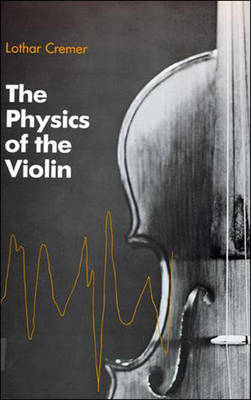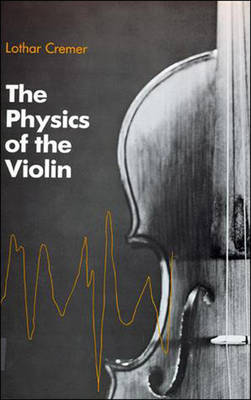
- Afhalen na 1 uur in een winkel met voorraad
- Gratis thuislevering in België vanaf € 30
- Ruim aanbod met 7 miljoen producten
- Afhalen na 1 uur in een winkel met voorraad
- Gratis thuislevering in België vanaf € 30
- Ruim aanbod met 7 miljoen producten
Omschrijving
The book--which was published in German in 1981--first of all meets the rigorous technical standards of specialists in musical acoustics. But it also serves the needs and interests of two broader groups: makers and players of stringed instruments are expressly addressed, since the implications of the mathematical formulations are fully outlined and explained; and acousticians in general will find that the work represents a textbook illustration of the application of fundamental principles and up-to-date techniques to a specific problem. The first--and longest--of the book's three parts investigates the oscillatory responses of bowed (and plucked) strings. The natural nonlinearities that derive from considerations of string torsion and bending stiffness are deftly handled and concisely modeled. The second part deals with the body of the instrument. Special attention is given to the bridge, which transmits the oscillations of the strings to the wooden body and its air cavity. In this case, linear modeling proves serviceable for the most part--a simplification that would not be possible with lute--like instruments such as the guitar. The radiation of sound from the body into the listener's space, which is treated as an extension of the instrument itself, is the subject of the book's final part.
Specificaties
Betrokkenen
- Auteur(s):
- Uitgeverij:
Inhoud
- Aantal bladzijden:
- 482
- Taal:
- Engels
- Reeks:
Eigenschappen
- Productcode (EAN):
- 9780262527071
- Verschijningsdatum:
- 14/11/1984
- Uitvoering:
- Paperback
- Formaat:
- Trade paperback (VS)
- Afmetingen:
- 160 mm x 224 mm
- Gewicht:
- 657 g

Alleen bij Standaard Boekhandel
Beoordelingen
We publiceren alleen reviews die voldoen aan de voorwaarden voor reviews. Bekijk onze voorwaarden voor reviews.











